Connected Life 2018 – Conference Proceedings
A multidisciplinary Internet research conference at the University of Oxford, Connected Life 2018’s theme was Information Control.
The proceedings can be seen in the interactive document below.
Keynote Speakers
 Dr. Alice Marwick Dr. Alice Marwick
Alice E. Marwick (PhD, New York University) is an Assistant Professor in the Department of Communication and Faculty Advisor to the Media Manipulation Initiative at the Data & Society Research Institute. She researches the social, political, and cultural implications of popular social media technologies. In 2017, she co-authored Media Manipulation and Disinformation Online, a flagship report examining far-right online subcultures’ use of social media to spread disinformation, for which she was named one of 2017’s Global Thinkers by Foreign Policy magazine. She is the author of Status Update: Celebrity, Publicity and Branding in the Social Media Age (Yale 2013), an ethnographic study of the San Francisco tech scene which examines how people seek social status through online visibility, and co-editor of The Sage Handbook of Social Media (Sage 2017). Her writing has appeared in popular publications such as The New York Times, The New York Review of Books and The Guardian in addition to academic journals including New Media and Society, the Journal of Computer-Mediated Communication, Public Culture, Social Media & Society, and the International Journal of Communication, among others. Her current book project examines how the networked nature of online privacy disproportionately impacts marginalized individuals in terms of gender, race, and socio-economic status. Her most recent article, on the language of the men’s rights movement, appears in Feminist Media Studies.
|
 Professor Philip Howard Professor Philip Howard
Philip N. Howard is a statutory Professor of Internet Studies at the Oxford Internet Institute and a Professorial Fellow at Balliol College at the University of Oxford. He has courtesy appointments as a professor at the University of Washington’s Department of Communication and as a Fellow at Columbia University’s Tow Center for Digital Journalism. He has held senior academic appointments at Stanford, Princeton, and Columbia Universities, and from 2013-15 he helped design and launch a new School of Public Policy at Central European University in Budapest. Recently he received a Consolidator Award from the European Research Council for his study of algorithms and public life. His projects on digital activism, information access, and modern governance in both democracies and authoritarian regimes have been supported by the National Science Foundation, US Institutes of Peace, and Intel’s People and Practices Group. He has published eight books and over 120 academic articles, book chapters, conference papers, and commentary essays on information technology, international affairs and public life. His research spans several disciplines, and he is among a small number of scholars who have won awards from all three major academic associations for his work in political science, sociology, and communication. He is the author, most recently, of Pax Technica: How the Internet of Things May Set Us Free or Lock Us Up. Howard’s research and commentary writing has been featured in the New York Times, Washington Post, and many international media outlets. His B.A. is in political science from Innis College at the University of Toronto, his M.Sc. is in economics from the London School of Economics, and his Ph.D. is in sociology from Northwestern University. His website is philhoward.org, and he tweets from @pnhoward. His PGP key can be found here. |
Participants
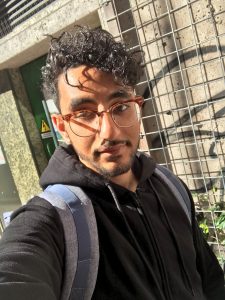 Adbel-Rahman Hassan Adbel-Rahman Hassan
Abdel-Rahman Hassan is a multi-disciplinary researcher at the Digital Society School in Amsterdam, a creative programmer and occasional spoken word artist. His work combines the technical and social aspects of digitality, stemming from an intersectional, critical and non-western point of view. He tweets at @abdorepublic.
|
 Abhishek Gupta Abhishek Gupta
Abhishek Gupta is an AI Ethics Researcher at McGill University and District 3 in Montreal, Canada. His research focuses on practical ways to address ethical concerns in using AI in different domains.
At District 3, he is researching the labor impacts of AI in the financial services industry. At McGill University, he is building a curriculum on the ethical development of AI for students, faculty, staff and alumni. He is the founder of the AI Ethics community in Montreal that has over 690 members from diverse backgrounds who discuss AI ethics and offer public consultations to initiatives like the Montreal Declaration for Responsible AI. His research has been featured by the UN and he travels frequently across North America and Europe to help governments, industry and academia understand AI and how they can incorporate ethical development processes within their work. |
 Alexander Suyer Alexander Suyer
Alexander Suyer studied management with a focus on entrepreneurial finance, innovation management and technology (especially chemistry) at Technical University of Munich and National University of Singapore.
In his doctoral research at Ludwig-Maximilians-Universität in Munich and the Max Planck Institute for Innovation and Competition he examined ideology’s role in technological change. The empirical study of the adoption of e-mobility shows how educational and occupational imprinting influence inventors’ perception of a new technology. It also measures the influence this perception has on adaptation to technological change. After receiving his doctorate degree Alexander has been involved in a number of projects regarding copyright law, the Internet and digitization. For example, research commissioned by the German Federal Ministry of Justice and Consumer Protection considered how copyright law affects German internet start-ups and how founders deal with regulation. Latest research focuses on the use of copyright-protected creative online content by German consumers.
|
 Ana Grouverman Ana Grouverman
Ana Grouverman is a researcher at the University of Oxford, where she is working on the Computational Propaganda Project and pursuing a Master’s degree at the Oxford Internet Institute. Her current research focuses on modeling the diffusion of ideas across online social networks.
Prior to the UK she spent six years at Google, conducting user research and leading a data security program for Google Apps. She has also spent time as a policy researcher and lead writer at Jigsaw (formerly Google Ideas), a technology incubator under Alphabet Inc. She began her career in management consulting, and holds a BSc in international politics and security from Georgetown University.
Her interests include issues of media manipulation, digital privacy, user-centered design, and diversity and inclusion in the technology industry.
|
 Andrew Strait Andrew Strait
Andrew Strait is a Research Assistant of the Digital Ethics Lab and an MSc student at the Oxford Internet Institute supervised by Professor Luciano Floridi.
His research interests fall at the intersection of ethics, technology, and the law with a particular focus on the content moderation industry. He has written on a variety of topics including trolling and identity-building in online virtual reality communities, the regulation of non-consensually shared explicit content, and strategies for developing automated content moderation practices. Previously, Andrew worked for 6 years as a Legal Policy Operations Specialist at Google Inc. where he helped develop, refine, and enforce Google’s policies on data protection, hate speech, child safety, terrorist content, “revenge porn,” and cyberharassment, amongst other legal issues. He has published industry reports on Google’s response to piracy and contributed to Google’s Transparency Report. Currently, he is researching the development of industry standards relating to machine learning and artificial intelligence in the content moderation industry. |
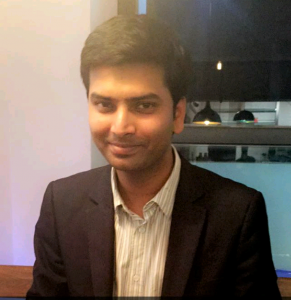 Arnav Joshi Arnav Joshi
Arnav is a Commonwealth qualified technology lawyer and researcher, currently pursuing the MSc Data and Society masters program at the Department of Media and Communications, London School of Economics and Political Science.
In six years of private practice, he has advised leading global technology companies on a range of complex regulatory issues, and his articles have appeared in leading publications including The Economic Times, The Week and The Business Standard. Arnav’s primary research interests lie in data ethics, privacy and socio-technical systems, and he is currently a researcher and co-author on the Open Society Foundations funded Understanding Automated Decisions Project, and the Google funded Algorithmic Fingerprinting and Machine Learning UX Project. He tweets at @boom_lawyered. |
 Austin Ruckstuhl Austin Ruckstuhl
Austin Ruckstuhl is a PhD Fellow at the United Nations University – CRIS in Bruges, Belgium. He holds a B.A. in Political Science from Johns Hopkins and an M.A. in International Relations from IBEI in Barcelona. His current research is part of the GREMLIN project (Global and REgional MuLtistakeholder INstitutions), which examines the legitimacy and effectiveness of multistakeholderism in Internet governance and trade. Specifically, Austin examines the case of stakeholder participation in Internet governance forums. He also supports the fundraising efforts of the Internet Governance Forum Support Association (IGFSA) and is a RIPE 76 Fellowship recipient. |

Bethan Charnley
Bethan is an MSc Student at the Oxford Internet Institute (OII) with a focus on social media, human rights and legal identity. Trained as a historian at the University of Cambridge, her work at the OII seeks to situate contemporary policy debates within longer historical trajectories. Prior to the OII Bethan worked for management consultancy Elixirr. Based between London and San Francisco she advised international clients on emerging technologies. |
 Ella Guest Ella Guest
Ella is a PhD researcher in social statistics and the University of Manchester, and a member of the Mitchell Centre for Social Network Analysis. She studies Reddit and is interested in the diversity of topics people interact with online. Her current research compares echo chamber and “anti-echo chamber” subreddits to examine how content diversity interests within the chamber relate to those outside. (She’s got her fingers-crossed that echo chamber fears are overblown). She’s also recently completed a data science internship at BBC News where she dabbled in data & algorithmic ethics to operationalise the concept of the “public service algorithm” for online news. In particular, she looked at how article recommender systems should be audited to avoid creating filter bubbles. |
 Edward Percarpio Edward Percarpio
Edward is the Privacy Architect for Sovy, a regulatory technology startup that works to simplify and automate data protection compliance for small-to-medium-sized businesses. His work focuses on designing automated tools and strategies to guide laypersons through the GDPR, from performing risk assessments and data audits to creating transparent and readable privacy policies. Edward earned his B.S. in International Relations from Georgetown University’s School of Foreign Service, and his M.Sc. from Oxford University’s Internet Institute. At the Oii, he wrote his dissertation on the GDPR’s impact on discriminatory profiling and human-AI decision-making. He also worked as a graduate researcher on a John Fell grant using machine learning to predict online attention to political events across different news media platforms. He has spoken and published numerous articles on international data protection law, AI, and GDPR compliance, most recently as a contributing author on The International Guide to Cybersecurity (American Bar Association, forthcoming). |
 Evgenia Vafeiadou Evgenia Vafeiadou
Jenny Vafeiadou is a Ph.D. Candidate at Birkbeck, University of London & Institute of Education, UCL. Her research interests focus on ubiquitous, wearable and mobile computing, health technologies, participatory design and online patient communities. Particularly, her PhD projects look into self-tracking technologies for people with Parkinson’s. Her research is funded by the Bloomsbury Consortium and she is jointly supervised by Professor George Roussos (Birkbeck) and Dr Mina Vasalou (UCL). Jenny is also passionate about equal gender representation in STEM and she is the student member of the Athena SWAN Committee at the Department of Computer Science, Birkbeck. Jenny holds a MSc in Learning and Technology from University of Oxford and a B.A (Hons) from National University of Athens. |
|

Felix Simon
Felix M. Simon is a journalist and independent researcher. He works as a research assistant at the Reuters Institute for the Study of Journalism and is the acting editor of the European Journalism Observatory based at the Reuters Institute. He is writing about technology, media, and politics for the German newspapers Frankfurter Allgemeine Zeitung, Die Welt, and the Swiss NZZ and had bylines in the Telegraph, the THE, and other outlets. During his studies, he was a fellow of the Journalism Programme of the Konrad-Adenauer-Foundation.
His research broadly focuses on political communication in the digital age, big data in politics and the entertainment industry, as well as the changing nature of journalism and the media in the 21st century. Felix graduated with a BA in Film- and Media Studies from the Goethe-University Frankfurt and holds an MSc in Social Science of the Internet from the University of Oxford’s Internet Institute. |
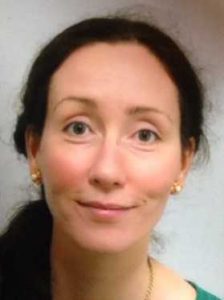 Femke Mulder Femke Mulder
Femke Mulder is a PhD researcher, focusing on information technology, social networks and knowledge management in humanitarian disasters. She has over 10 years of professional experience in the international NGO sector and with local government. She is a member of the NWO Smart Disaster Governance research team, based at the department of Organization Sciences at VU University in Amsterdam. Her areas of expertise are community participation and innovation in disaster governance. |
 Gustavo Mascarenhas Gustavo Mascarenhas
Gustavo Mascarenhas is a Criminal Law Clerk for Justice Marco Aurélio Mello, of Brazilian Supreme Court. He is also a Ph.D. candidate and holds a Master’s degree (stricto sensu) in Criminal Law from University of São Paulo, Law School (FD-USP). He graduated from University of São Paulo, Law School in Ribeirão Preto(FDRP-USP). His main areas of study are criminal law, criminal compliance, privacy, regulatory of internet (with a significant role in the agreement between IBCCrim and Nic.br), blockchain and BaaS. |
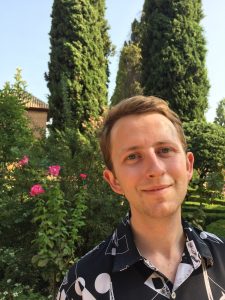 James Marchant James Marchant
James Marchant is the Research Manager at Small Media, a London-based non-profit working to support freedom of expression online. Since 2013, James has worked to produce data-driven, impact-minded research spanning a range of internet freedom challenges in closed societies around the world. His past work has focused on issues ranging from the digital security threats facing East African civil society organisations, to the online lives of LGBT people in closed societies, to the development of Iran’s ‘National Internet’. In his spare time, he works on curating his extensive database of animal .gifs. |
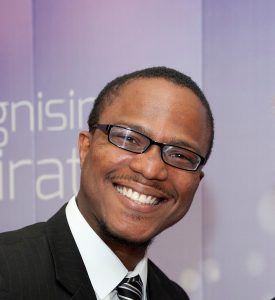 Jason R.C. Nurse Jason R.C. Nurse
Dr Jason R.C. Nurse is a Senior Researcher (Oxford Research Fellow) in Cybersecurity at Oxford University’s Department of Computer Science and a JR Fellow at Wolfson College, Oxford. His research focuses on developing novel approaches and systems for national and organisational cybersecurity. In addition to this, Jason’s research explores creative ways to identify and address the security and privacy risks that individuals face in cyberspace. This covers a range of areas, such as the risk to oversharing personal information on social media, and addressing questions about how technology, or lack thereof, impacts cybersecurity risk in society. Jason is currently involved in several projects spanning topics such as Cyber Risk and Internet-of-Things, Corporate Reputation and its impact by Data Breaches, Online Identity Risks, Cybercrime, and Security Awareness and Education. For his research into cybersecurity, Jason has been selected as a Rising Star in research as a part of the UK’s EPSRC RISE awards campaign. He tweets at @jasonnurse. |
 Lara Fishbane Lara Fishbane
Lara is a research assistant at the Beeck Center for Social Impact + Innovation, a university center dedicated to understanding how data, technology, and finance can be leveraged to deliver social outcomes. Her research primarily focuses on understanding the policy and ethical implications of implementing emerging and civic technologies. Her team is currently developing a human-centered design framework to guide the responsible development of blockchain technologies. Lara holds a Bachelor of Arts in Economics and English from Georgetown University.
|
 Lucas Costa dos Anjos Lucas Costa dos Anjos
Lucas is the founder and scientific advisor of the Institute for Research on Internet and Society and a law professor at Universidade Federal de Juiz de Fora. He holds a Master and a Bachelor degree from the Federal University of Minas Gerais, with a scholarship from CAPES (Coordination for the Improvement of Higher Education, a Foundation within the Brazilian Ministry of Education), and is currently a PhD student at the same institution. Lucas is a specialist on International Law at CEDIN (Center for International Law) and an assistant professor for the International Economic Relations and Law Courses at the Federal University of Minas Gerais. He is also a member of the ABRI (Brazilian Association for International Relations). He is currently researching internet neutrality and its impacts on freedom of speech, digital inclusion and accessibility. |
 Marcel Höfling Marcel Höfling
Marcel is a lawyer in the Brazilian startups ecosystem, mediator of the Italian Chamber of Commerce of São Paulo and master degree candidate in civil procedural law in the University of São Paulo. He is interested in digital law and investigates how access to justice occurs in Brazil. More specifically, Marcel conducts empirical studies in law to analyze judicial controls over public policies, the use of the judicial system for electoral purposes as well as the impacts for access to information and free speech on the Internet. |
 Maria Bada Maria Bada
Dr Maria Bada is a Senior Researcher at the Global Cyber Security Capacity Centre, University of Oxford. In this role, she focuses on research related to cybersecurity and cyberpsychology and encouraging responsible cyber culture within society. She is conducting research on the human factors of cybersecurity and the assessment of the effectiveness of cyber security awareness campaigns for school learners, SMEs and general public, their impact in changing online behaviour and the factors to assess cyber security capacity. She is a member of the National Risk Assessment (NRA) Behavioural Science Expert Group in the UK, working on the social and psychological impact of cyber-attacks on members of the public. Moreover, her research focuses on profiling of cybercriminals, the cybercrime ecosystem and how the Internet supports criminal behaviour online as well as the ways to combat cybercrime through tools and capacity building especially for emerging economies. |
 Maria Lorena Flórez Rojas Maria Lorena Flórez Rojas
I am a 3rd year PhD fellowship in the program of Individual Person and Legal Protections at the Scuola Superiore Sant`Anna and current Visiting Research Fellow at the Max Planck Institute for Innovation & Competition Law. I am an attorney with emphasis in technology law graduated from Los Andes University in Bogota, Colombia with an LLM in Law and Technology from Tilburg, University. I am a member and former Coordinator of the Study Group GECTI in Colombia which is a group of experts in law and technology that seeks to promote multidisciplinary work and establish a bridge between the University and society. My research is based on the geo-blocking practices on the online environment and the implications in consumer and copyright law. This is my blog with some comments regarding public policies in the European Union as well as in Colombia related with consumer law and technology: http://mltechlaw.com/en/home/ |
 Maria Canto Maria Canto
Mariana Canto is a law student at the Federal University of Pernambuco in Brazil. Her Bachelor thesis is related to the rise of the digital platform economy and its impacts on privacy and data protection regulations around the world. She is also a researcher selected by the Brazilian National Council for Scientific and Technological Development (CNPq) through the UFPE Institutional Scholarship for Scientific Initiation (PIBIC). She is a member of the Discussing Digital Law, Internet, and Technology (DDIT) extension group of the Federal University of Pernambuco and invited author at the Institute for Research on Internet and Society (IRIS). She collaborates across studies with a focus in IT law, especially digital platforms regulation, privacy, and data protection. Mariana’s paper is related to the possible effects of Fake News on the Brazilian presidential election in 2018 and an analysis of the tools created in order to prevent that. |
 Maud Barret Bertelloni Maud Barret Bertelloni
Maud is a MSc student at the Oxford Internet Institute, Italian and French student (Sciences Po, Université Paris Sorbonne), who insists on reconciling political theory and philosophy of technology with praxis. She will be talking about Controlling the black box: the myth of algorithmic interpretability and instrumental understanding of technology. |
 Meredydd Williams Meredydd Williams
Meredydd Williams is a cybersecurity PhD student at the University of Oxford. He currently conducts research into smartwatches and the privacy they provide. He received his MPhil Advanced Computer Science from the University of Cambridge in 2014. Prior to this, he completed a BEng Software Engineering at Aberystwyth University. His research interests include online privacy, behaviour change, and the security aspects of the Internet-of-Things (IoT). Outside of academia, he enjoys sports, travelling and the countryside. |
 Michaela Brady Michaela Brady
Michaela Brady is a full-time MSc student at the OII, concentrating on the efficacy of therapy apps in addressing and reducing cyber-aggression. She completed her undergraduate degree at Sarah Lawrence College last year, with a concentration in writing, social psychology and media. Building off of these interests, she was a research assistant at the Derner Institute of Advanced Psychology at Adelphi University and conducted qualitative coding for a study on the role of therapeutic immediacy in improving alliance with depressed patients. Currently, she is the head of Wellbeingbots, a team of students developing an app which will centralise the myriad mental health provision services within Oxford University, and was a finalist in Microsoft’s Imagine Cup UK this past April. When not immersed in psychology and interviewing therapy app developers, she enjoys creative writing, debating, film editing and singing. |

Natalie Hall
Natalie-Anne Hall is a first year PhD candidate in Sociology at the University of Manchester. Her research focuses on the role that social media may play in the contemporary propagation of anti-immigrant sentiment, particularly among non-digital natives. She originally studied languages and linguistics at Griffith University in her home town of Brisbane, Australia, before completing an MA in International Development at Nagoya University in Japan. She also holds an MSc in Social Science Research Methods from the University of Bristol, and has worked for HM Inspectorate of Prisons, the former Australian Department of Immigration and Citizenship, UNESCO Bangkok, and as a professional translator. Her passions include social justice, latin dancing and running, and she authors a blog on the sociology of diversity: www.natalieannehall.com. |
 Nermine Aboulez Nermine Aboulez
Nermine is an assistant lecturer at the Faculty of Mass Communication in Cairo University. She got her MA degree from the American University in Cairo; her thesis was an experimental study looking at the effects of media on altruistic behavior, using sexual harassment as the subject for the staged manipulation. It was nominated for the Magda Al-Nowaihi Gender Studies Award. She then, presented a paper at the IAMCR conference in 2016 on the effects of media demonization on schadenfreude, when it comes to Muslim Brotherhood and military/police casualties, as well as, a paper that she co-authored tackling the portrayal of HIV/AIDS in Egyptian cinema. Her research interests include; media psychology, political communication, experimental studies and social media. |
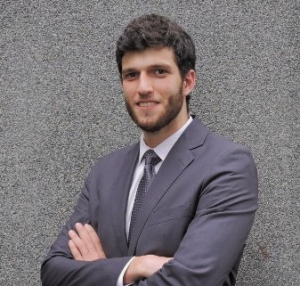
Rafael Farah
I am a Brazilian lawyer and graduate student in Civil Procedure at Pontifical Catholic University of São Paulo (PUC-SP) with a law degree from Mackenzie University. I am a specialist in digital rights and have been serving tech corporations for over four years. I investigate the correlation between Brazilian election periods and freedom of expression on the internet. The coincidence of the increase of the requests with the electoral moments suggests that the motivation of the removals, in fact, is predominantly about electoral strategy and not protection of the honor or image of the candidates. This fact raises concerns about the influence of the judiciary system on political campaigns, another reason why we defend a greater transparency by the public authorities about the contents removed and the specific arguments used to justify the withdrawal of this kind of information from the Internet. |
 Roland Stuerz Roland Stuerz
Roland A. Stuerz is a senior research fellow at the Max Planck Institute for Innovation and Competition in Munich.
His current research deals with the use of copyright-protected creative online content by German consumers. He also works on various other projects dealing with digitization or providing innovation policy advice to political entities. He regularly teaches courses on innovation policy and quantitative empirical methods. Roland Stuerz studied management with a focus on innovation management and marketing at Ludwig-Maximilians-Universität in Munich and at the Copenhagen Business School. He holds a diploma degree in management, a Master of Business Research and a doctoral degree from the Ludwig-Maximilians-Universität. In his doctoral thesis he investigated the driving forces of industry evolution and firm survival of newly founded companies using quantitative data on the firm populations of Austrian, German, U.K., U.S. and Australian motorcycle manufacturers as well as German piano producers and their German suppliers |
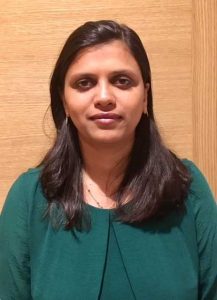
Ruchi Hajela
Ruchi Hajela is a current student of Msc Media and Communications (Data & Society) at the London School of Economics and Political Science. She has previously worked as a journalist for the Hindustan Times newspaper in India and as a research affiliate at The Migration Observatory in Oxford. She is mainly interested in areas such as information systems, digital ethics and disinformation. Her paper analyses the impact of actuarial data classification and categorisation in reinforcing socioeconomic stereotypes. |
 Ruhi Khan Ruhi Khan
Ruhi Khan has worked a journalist for over a decade for UK & Indian news media. She is currently doing her MSc in Data & Society at the Media & Communication department at LSE and also has a MA- International Journalism from City, University of London. Ruhi was a Jefferson fellow at the East-West Center, USA and a recipient of the Mary Morgan Hewitt Award for Journalism. Ruhi’s current research focusses on surveillance capitalism and platform affordances. It probes how online social order traces a similar pattern to the historiography of class and categorisation of modern society. She tweets @khanruhi |
 Shirley Ogolla Shirley Ogolla
Shirley Ogolla is a researcher at the Humboldt Institute of Internet & Society (HIIG) in Berlin, investigating emerging forms of Internet-enabled participation. At HIIG, Shirley’s research focuses on workers participation on digital platforms by examining new forms and processes of employee participation online. Shirley has a background in Media Studies from Humboldt University of Berlin, Sorbonne University in Paris and New York University. Further, she spent the summer of 2017 at the Berkman Klein Center for Internet and Society working on topics on machine learning bias, artificial intelligence and ethics. Shirley is also the co-founder of collective no:topia, an italian-german artist collective based in Torino and Berlin, building interactive art installations on technologically embedded futures for the broader public. |
 Sinuhe Cruz Sinuhe Cruz
Sinuhe Nascimento e Cruz is currently a third-year Law student at the University of São Paulo Law School. His work focuses on the existing relationships and intersections between private and public sectors in contemporary surveillance practices, as well as the opportunities and risks associated with data in the new Global Economy. The research he will be presenting at the upcoming Connected Life Conference explores the expansion route of surveillance capitalism in the brazilian health sector, describing how public actors and private companies could be collecting, treating and using citizen’s sensitive health data for profit purposes. His areas of interest include Internet Governance, International Human Rights Law and the role of Law in shaping Public Policy. He is a researcher at the Interdisciplinary Observatory of Public Policy at the School of Arts, Sciences and Humanities (USP), and is currently learning data science and developing programming skills.
|
 Tom Ormson Tom Ormson
Tom Ormson is a researcher at Small Media, a London-based non-profit. Since joining in 2017 he has focused on a number of data-driven topics ranging from social media use during the Iranian Presidential elections, to the digital security landscape of CSOs in East Africa, and open data projects shining a light on the environment in Iran. He has a Masters in Global Security from Sheffield University, and alongside talking about how amazing dogs are, Tom likes to be in the outdoors, where he has a true knack for falling down mountains with the pretence of being able to ski. |

Ulrik Lyngs
Ulrik is a DPhil candidate at the Department of Computer Science, University of Oxford, supervised by Sir Nigel Shadbolt and part of the ‘Social Machines’ research group. Ulrik’s research focuses on design solutions for attention management in environments of constant digital distractions. Specifically, his project will empirically evaluate popular tools on the rapidly emerging market for anti-distraction applications, like Freedom, RescueTime and Forest.
An experimental psychologist-turned-computer scientist, Ulrik previously worked in London as an editorial producer at the HowTheLightGetsIn festival for philosophy and music before returning to Oxford. He holds an MSc in Cognitive and Evolutionary Anthropology from the University of Oxford and an MA in Psychology and the Study of Religion from the Aarhus University.
When he’s not thinking about how to save us from our smartphones, he’s playing the melodica, looking for a dancefloor to take over, or planning his next backpacking trip. |
 Zahraa Badr Zahraa Badr
Zahraa Badr is a teaching assistant and a Master’s student in the Faculty of Mass Communication at Cairo University. She is writing her Thesis in the Journalism Department about Media Ownership Concentration. Her research interest goes beyond that to include Digital Journalism and Health Communication. Also, she co-authored a paper in the IAMCR conference in 2016 about the representation of HIV/AIDS in the Egyptian Cinema. Apart from research and academia, she is an invested tennis fan and a movie addict. |
Programme
|
|
| Welcome Speech (Professor Philip Howard)
10:00 – 10:50 |
|
|
|
|
|
|
|
|
|
|
|
|
|
|
|
|
|
|
|
Keynote: Dr. Alice Marwick
|
Panels
Panel 1: Media and Information Exposure
Nermine Mourad Aboulez
From “News-Finding-Me” to “Me-Finding-News”: Incidental News Exposure on Social Network Sites and Its Impact on Active News-Seeking
Evgenia-Xenia Vafeiadou
Online Patient Forums: What People With Parkinson’s Want and More Importantly Need
Big Data goes to Hollywood: The Emergence of Big Data as a Tool in the American Film Industry
|
Panel 2: Technology and Social Surveillance
Ruhi Khan
Ordering the Social: Categorisation, Surveillance and Symbolic Power
Natalie-Anne Hall
New Media, New Racisms
Meredydd Williams
Smartwatches and Information Privacy: Do Users Practice What They Preach?
Sihune Nascimento Cru
Data, Body, Control: the Expansion Route of Surveillance Capitalism in the Brazilian Health Sector
|
Panel 3: Policing Digital Rights
Maria Bada and Jason Nurse
Reputation at Risk! The Effects of Less Information Control Regarding Corporate Data Breaches
Bethan Charnley
Registration without Recognition: Deconstructing Facebook’s ‘Real Name’ Policy
Edward Percarpio
A Consequentialist Approach to Interpreting the Right to Explanation
Roland Stuerz
The Use of Copyright-Protected Creative Online Content by German Consumers – A Comparison to the UK |
|
Panel 4: Politics, Data and Interference
Freedom of Expression on the Internet During the Brazilian Elections
Mariia Terentieva
The Internet as Public Self-Service Media: Exploring Digital Civil Society in Post-Maidan Ukraine
Tom Orson and James Marchant
#IranVotes: Analysing the 2017 Iranian Presidential Elections through Telegram, Twitter and Instagram
Abdel-Rahman Hassan
The Troll Dialectic: Organized Disinformation and Post Irony in Counter-Revolutionary Egypt
|
Panel 5: Digital Boundaries
Femke Mulder
How Digital Divides Shape Disaster Resilience: The Case of the 2015 Earthquake in Nepal
Ella Guest
(Anti-)Echo Chamber Participation: Examining Contributor Activity Beyond the Chamber
Abhishek Gupta
Inclusive Design – How Do We Ensure a High Degree of Participation in Artificial Intelligence (AI) Systems?
|
Panel 6: Tools of Justice
Lucas Costa dos Anjos
Logic Gates and Access Records of Internet Users: From Technical Possibilities to Judicial Reasoning in Brazilian Courts
Gustavo Mascarenhas
The Application of Artificial Intelligence in Criminal Sentences
Andrew Strait
Automating Online Justice – The Effects of Automation on the Content Moderation Process
|
Poster Presentations
| Ana Grouverman |
A Vocal Minority: The impact of organized social media campaigns on public skepticism of global climate change |
| Michelle de Mooy |
Automated Decision-Making in Commercial Health: Understanding Bias and Discrimination in mHealth Apps |
| Maria Florez Rojas |
Transparency Based-approach to Apply Internet Content Filtering and Blocking Systems |
| Austin Ruckstuhl |
Current Variations of Multistakeholderism in Internet Governance |
| Annalisa Eichholzer |
The Case of Telegram: How Platforms Are Redistributing Trust From Institutions to Individuals |
| Michaela Brady |
Childish Rumors: The Impact of Cyberbullying History on Rumor and False News Propagation |
| Arnav Joshi |
Algorithmically Powered User Agency – Are Adorno and Smythe Irrelevant in an Automated Public Sphere? |
| Ruchi Hajela |
The Arbitrariness of Categorisation and Consequences of Predicting without Knowing: The Case of Automobile Insurance |
| Maud Barret Bertelloni |
Controlling the Black Box: Instrumentality, Knowledge, and Information Technology |
| Mariana Canto Sobral |
Electing or Deflecting? How Fake News Could Affect the Brazilian Presidential Election in 2018 |
| Ulrik Lyngs |
What the ‘Anti-Distraction Market’ Tells Us About Digital Technology and Self-Regulation |
| Carlos Alberto García Méndez |
Disconnected life: Dealing with Digital Empires, Big Data and Algorithms: A Critical Approach of Digitality. |
| Deepak Kumar Baruah |
Implementation of “Digital India” Programme: A Case Study in Assam |
| Ethar Waleed Al-Saadi |
Digital Natives on Digital Detox Programs– A Study of Arab Millennials |
|





 Adbel-Rahman Hassan
Adbel-Rahman Hassan Abhishek Gupta
Abhishek Gupta Alexander Suyer
Alexander Suyer Ana Grouverman
Ana Grouverman Andrew Strait
Andrew Strait Arnav Joshi
Arnav Joshi Austin Ruckstuhl
Austin Ruckstuhl Ella Guest
Ella Guest Edward Percarpio
Edward Percarpio Evgenia Vafeiadou
Evgenia Vafeiadou
 Femke Mulder
Femke Mulder Gustavo Mascarenhas
Gustavo Mascarenhas James Marchant
James Marchant Jason R.C. Nurse
Jason R.C. Nurse Lara Fishbane
Lara Fishbane Lucas Costa dos Anjos
Lucas Costa dos Anjos Marcel Höfling
Marcel Höfling Maria Bada
Maria Bada Maria Lorena Flórez Rojas
Maria Lorena Flórez Rojas Maria Canto
Maria Canto Maud Barret Bertelloni
Maud Barret Bertelloni Meredydd Williams
Meredydd Williams Michaela Brady
Michaela Brady Nermine Aboulez
Nermine Aboulez Roland Stuerz
Roland Stuerz
 Ruhi Khan
Ruhi Khan Shirley Ogolla
Shirley Ogolla Sinuhe Cruz
Sinuhe Cruz Tom Ormson
Tom Ormson
 Zahraa Badr
Zahraa Badr